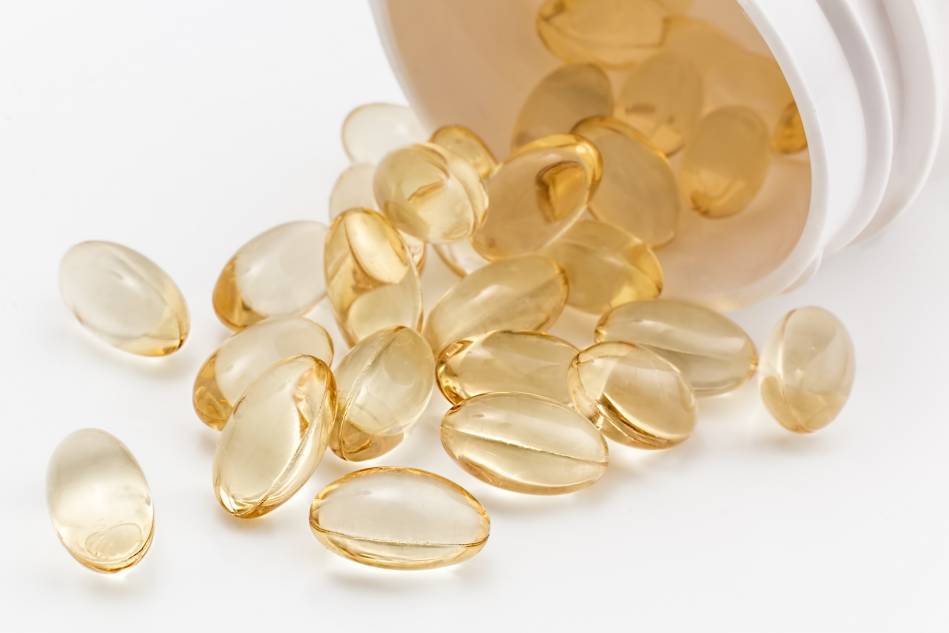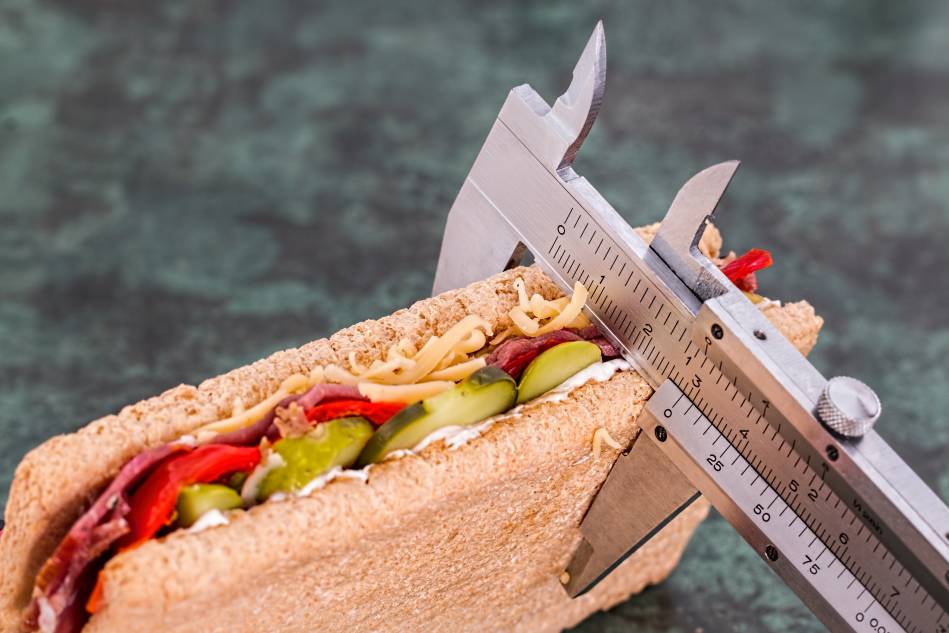
Calculating calories effectively – this is how to follow your diet
 Calculating calories is already one of the best-known options for those who would like to lose weight. We can find different calculators on several websites, that help to acquire the knowledge of the method. Its foundation is using the energy balance of the human body: if energy ingestion is more than consumption, then the result is putting on weight, if it is less, it means weight loss.
Calculating calories is already one of the best-known options for those who would like to lose weight. We can find different calculators on several websites, that help to acquire the knowledge of the method. Its foundation is using the energy balance of the human body: if energy ingestion is more than consumption, then the result is putting on weight, if it is less, it means weight loss.
After analysing the basic condition, it can be perfectly used to reach weight loss, as well as lean muscle — naturally, while keeping the other rules regarding meals. However, using it on its own and in a wrong way — as it is the case with other miracle diets too — we can do serious harm to our body.
How does calorie calculation work?
The unit of measurement is calorie (cal). One calorie increases the temperature of water by one °C. Nutrition science and the average person understands kcal under calorie, which is one calorie multiplied by one thousand.
The energy needed for the human body is given by the digestion of food, proteins, fats and carbohydrates. The most of the energy is given by fats with 9,3 kcal/g, with the help of proteins and fats we gain 4,1 kcal energy per gram.
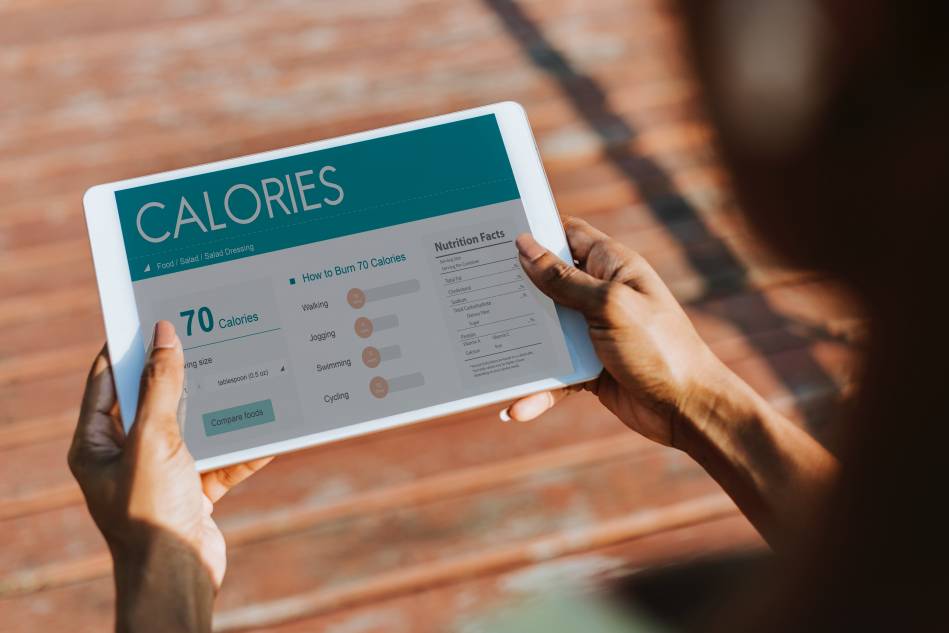
What are the standpoints according to which the daily calorie demand can be determined?
1. Nature of work
When determining the daily calorie requirement, the nature of our work plays a crucial role. Office, or intellectual work burn the least amount of energy, whereas in case we generally stand or come and walk around a lot, calorie demand grows. For example being a leading athlete consumes the highest amount of calories.
2. Fitness
What makes the difference is that whether we regularly train or not, or what does our body composition look like and how much muscles do we have. Our muscular tissue uses much more calories, so do not be afraid of becoming a little bit more muscular.
3. State of health
Some illnesses and needs influence calorie consumption and basic metabolism. In terms of low thyrogenic function, basic metabolism slows down, while hyper thyrogenic function causes basic metabolism to become faster, so calorie consumption is higher and weight loss is one of its side effects.
Calculating calories: pro and contra
Calculating calories is — alongside other topics in connection with nourishment — a very dividing subject amongst experts.
What are the disadvantages of calculating calories if we are on a diet?
-
Inaccurate calculation: It is very important to calculate accurately. Many forget about things or fruits, some do not count beverages, or one or two bites of snacks into the daily ingestion. Unfortunately, it is quite frequent that medicines contain sugar, particularly their syrup variations. Non-observing these elements will already give you a false result.
-
Too low caloric intake: Those who would like to lose weight with the help of calorie calculation frequently take too low amounts of calories, e.g. 900-1000-1200 calories. This amount is far below basic metabolism, therefore, on the one hand, our body switches into standby mode, and on the other hand it reacts by binge eating attacks due to starvation. Due to the fact that this state cannot be sustained for a long time, yoyo effect easily develops, thereby we can say good-bye to long-lasting results.
-
Inappropriate macro-nutriment compound: If we would like to lose weight with this method and we only keep an eye on calories, we will not be successful only by itself. It may happen that the scales will show less, but we will lose our muscles because we had not checked the proportion of nutriments and had not taken enough proteins, that would have helped to maintain our muscles. Furthermore, it happens many times on the long run that metabolism disorder develops, too low caloric intake and a diet put together improperly result in the lack of minerals and vitamins.
What are the benefits of the calorie counting method?
-
Calculable reaction: Our body uses energy to maintain its operation. The constituents of our body are given by the energy balance, in other words, if we consume more calories than our body uses, it will result in storing; if we consume less that it uses, then it starts destructive processes.
-
Perfect starting point for a diet: If we ate 4500 kcal a day, then it is the biggest stupidity to go on a 1000 kcal diet starting from the following day. The most important role calorie counting has, is when we are decided to change. This is the time when the following have to be precisely calculated: what and how much do we eat (not only from calories, but also the macro-nutriments). This diet order determines our present condition, so this is the point compared to which caloric intake should be decreased/increased according to the given target.
-
Macro-nutriments adjusted to the target: If we would like to have more muscles, it is also important to determine the amount of calories we have taken so far, and also the constitution of macro-nutriments. In this case for example, carbohydrate and protein should be increased contrasted to weight loss.
-
Traceable meals: One who makes a daily record of their meals, gains a lot of pieces of information, because they will know the ingredients of foods. Thereby, they will exactly know what does a given food roughly include, and they can recheck it any time what they had eaten and when.
Vitamins and counting calories
In terms of thinning diets, it is usually true that next to lower nutriment ingestion we are not able to replace the appropriate amount of vitamins and minerals. This is what causes the feeling of tiredness during a diet, or the frequent illnesses due to a weakened immune system.
| Vitamins do not provide our body with energy, they do not contain any calories. They are more like catalysts, and to maintain the normal operation of the constitution, normal metabolism-processes are in need. |
Replacing the following vitamins are recommended during a diet
-
B-Vitamins
Our body needs B-Vitamins day by day due to the protein and carbohydrate metabolism. If you consume less you become tired, you are unable to concentrate and become weak. Stress and nervousness are characteristic symptoms too, that result in the interruption of a diet many times. When we are tired, we have a greater desire for sweets and refined carbohydrates. B-Vitamin can be found in egg (yolk), liver, whole grains, and in leguminous plants. These are excluded many times exactly during a diet. -
C-Vitamin
One of the most important vitamins, not only because of its antioxidant feature, but it is also inevitable for the optimal operation of the immune system. Its replacement is of crucial importance due to the fact that we usually start the diets at the beginning of spring, or at the end of winter in order to get in shape for the summer, the time when the vitamin storage of our body starts running low. In this period of the year it is hard to access fresh vegetables, and fruits rich in vitamins. -
D-Vitamin
It is very important in order to operate the immune system, and because of the calcium household, in other words, to build up and maintain the bone system too. Studies show that the lack of D-Vitamin increases the risk of diabetes type 2 and becoming overweight. -
A-Vitam
A-Vitamin also functions as a catalyst of numerous metabolism processes, but it is the secret of beautiful, tight skin too, in case we would not only like to be slim but beautiful, too.
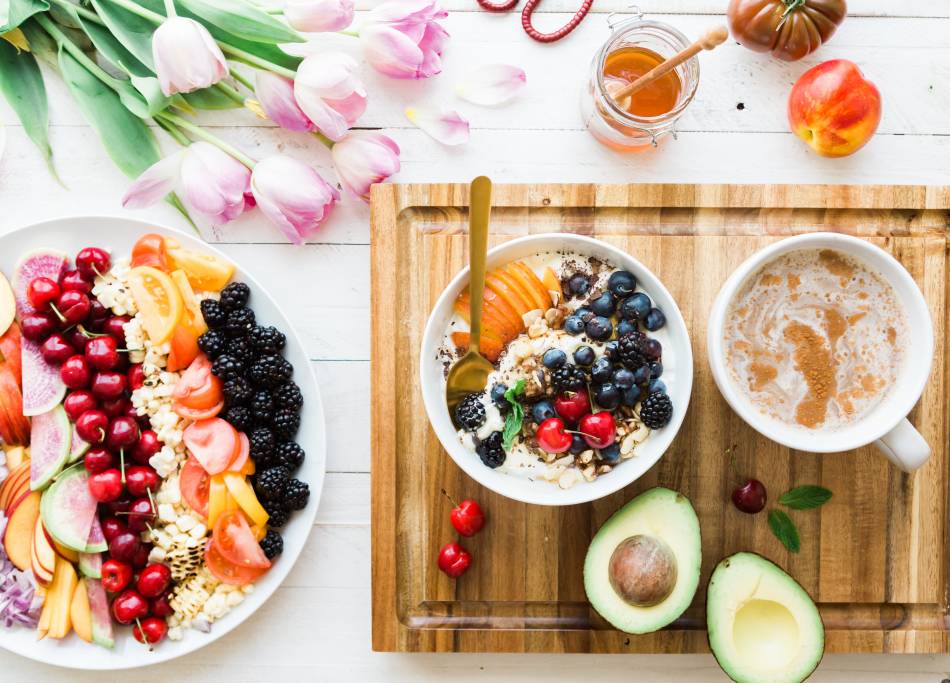
Recommended diets according to the daily energy requirements
Let’s see some frequent and adaptable diet recommendations.
Diet recommended for a woman doing intellectual work and who regularly does sports
It is an important standpoint, that we do not recommend caloric intake below the basic metabolism, therefore, we should follow a diet of about 1600-1700 kcal, but naturally, it depends on weight, too.
Breakfast: Omelette with vegetables
-
2 eggs
-
a few slices of leek or a stick of celery according to taste
-
1 tomato
-
1 pepper
-
herbs
-
a tiny portion of coconut oil
-
1 slice of whole grain solid rye bread
Elevenses: Protein pudding made with walnut
-
1 portion of Iso Whey Zero
-
10 g grind walnut
-
20 g oat or buckwheat flakes
Lunch: Chicken sprinkled with herbs and vegetable millet
-
180 g chicken breast
-
35 g raw millets
-
200 g zucchini
-
100 g carrot
-
10 g coconut fat
Fry the meat on the small coconut oil, then steam the vegetables cut into shreds, and in the meantime, mingle them with the millet boiled before in slightly salty water. Season it with herbs according to taste.
Before workout:
-
1 banana
-
1 portion of BCAA Zero
-
1 portion of L-Carnitine 100.000
After workout: 1 portion of Iso Whey Zero made with water
Dinner: Fish with Florentine sweet potato
-
200 g sea-fish
-
100 g sweet potato
-
250 g spinach
-
approx. 10 g coconut oil
-
1 clove of garlic
-
sea salt, herbs
Oil a baking pan or a fire proof platter with a little coconut oil. Cut the sweet potato and the garlic into slices, wash the spinach leaves. Season it according to taste. Place the fish on top of the vegetables, cook it for about 40 minutes while covered.
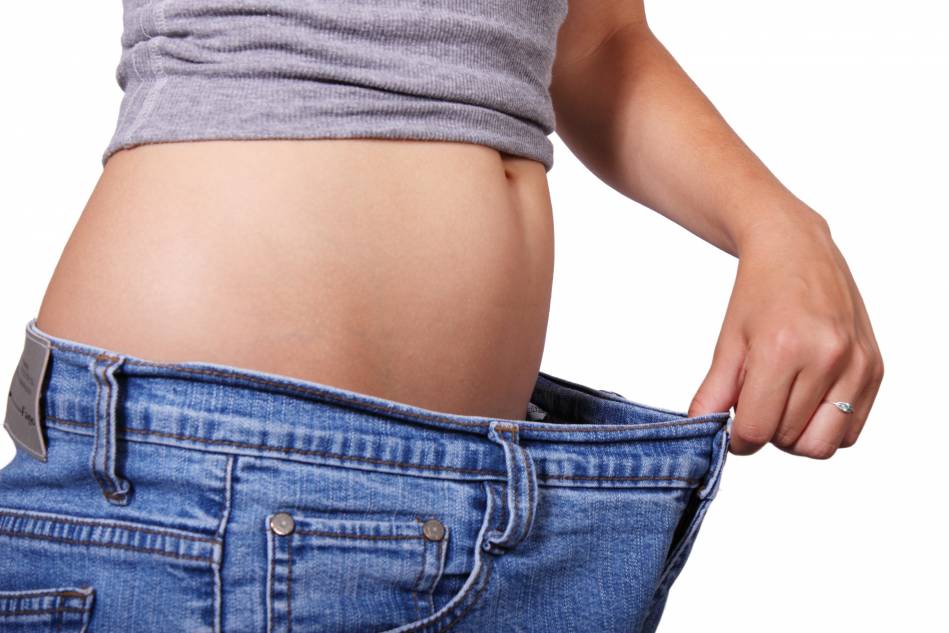
Postnatal get into shape diet
It is prohibited to follow a slimming diet during breast-feeding and pregnancy. In these cases the most important is to feed the baby properly: a balanced diet but with good quality ingredients. It is important to ingest the proper protein, good fats and carbohydrates. Avoid refined carbohydrates, food containing sugars, instead, eating whole grain, a lot of vegetables, grains, and cold-drawn oils is recommended.
Breakfast: Tortilla sandwich
-
1 whole grain tortilla sheet
-
1 salad leaf
-
4-5 slices of tomato
-
4-5 slices of cucumber
-
4-5 slices of Californian or Kapia paprika
-
50 g chicken breast ham
-
1 tablespoon natural yoghurt
Warm up the two sides of the tortilla in a frying pan. Pile up the ingredients into the tortilla and eat it rolled up.
Elevenses: Forest fruit yoghurt with whole grain biscuits
-
1 natural yoghurt
-
1 handful of tiny berries
-
3 whole grain biscuits
Lunch: Table beet salad by apple and carrot with grilled chicken breast
-
1 beetroot
-
1 carrot
-
1 apple
-
100 ml natural yoghurt
-
1 pinch of sea salt
-
0,5 tablespoon olive oil
-
4-5 grains of walnut
-
a bigger slice of chicken breast
-
tiny mustard, olive oil, salt, pepper for the marinade
-
coconut oil for cooking
-
50 g brown rice (weighed dry)
Peel, grate or cut the vegetables to shreds. Mix them with olive oil, and add a pinch of salt. Add the natural yoghurt to this as well. Put it into the fridge for a little time in order to let the flavours blend. Marinade the meat the night before, then serve it freshly fried together with the salad and the stewed brown rice.
Mid-afternoon snack: Nuts & Fruit
Dinner: Cottage cheese spread with parsley and carrot
-
150 g fatless cheese-curd
-
2 tablespoons of natural yoghurt
-
parsley leaf, pinch of salt
-
2 bigger grated carrots
-
pumpkin seed, or olive oil
-
1 slice of whole grain rye bread, or 3-4 slices of brown rice puffs
Diet recommended for one who is doing physical work but not doing sports
Physical work itself has a relatively high level of calorie need, yet overweight is frequent. The mistake is removable by planning, in other words, not buying anything that is accessible in buffets or in the local grocery stores, but carrying our food with us, or at least we should know what to find where. The other secret is not to eat up the fridge as well as the pantry when we arrive home exhausted. In terms of physical work, in case shredding is the target, about 2000-6000 calories are needed from energy depending on physique and the type of work.
Breakfast: Scrambled eggs
-
4 eggs
-
100 g whole grain bread
-
2 handfuls of any vegetables (cucumber, pepper, tomato, radish)
-
1 tablespoon of olive oil
Elevenses: OAT & Fruits + 1portion of Iso Whey Zero protein
Lunch: Grilled turkey breast with vegetables and basmati rice
-
200 g turkey breast
-
salt, herbs
-
300-400 g grilled vegetables (eggplant, zucchini, tomato, pepper)
-
duck or goose fat for the grill
-
60-70 g basmati rice (weighed dry)
Season the meat and the vegetables, then fry them on grill grids, or bake them in the oven.
Mid-afternoon snack: 1 Zero Bar protein bar
Dinner: Salmon fillet on spinach bed with bulgur
-
20g g salmon fillet
-
1 tablespoon honey
-
1 tablespoon sweet seasoning paprika
-
0.5 teaspoon lemonpepper
-
1 teaspoon sea salt
-
300 g spinach (frozen is ok too)
-
1 tablespoon coconut oil
-
1 clove of garlic
-
60 g bulgur (or quinoa)
Marinate the salmon, then leave it to rest in the fridge, hereby the flavours will blend better. In the meantime, boil the bulgur in slightly salty water. Fry both sides of the fish on a little fat. Melt the coconut oil in a frying pan, add the squeezed garlic, throw in the spinach leaves and wizen them in about 2-3 minutes.
With the help of the calorie counting method you can easily estimate your present condition, and you can get to know food ingredients. But beware: always everything you eat or drink adds to your daily ingestion.
| When a caloric intake of basic metabolism is above two weeks, our body switches to standby mode. In order to avoid this, first calculate your basic metabolism and the nutriment requirements suitable for you. |
As the result of the too low caloric intake, numerous insufficiency diseases, but might as well eating disorders can emerge. You do not need to starve in order to reach your goal. If you would like to do it right, and you would like to have a beautiful tight shape, then do not only calculate the calories, but take care of the proportions of the macro-nutriments, and choose the proper foods and eating habits!
